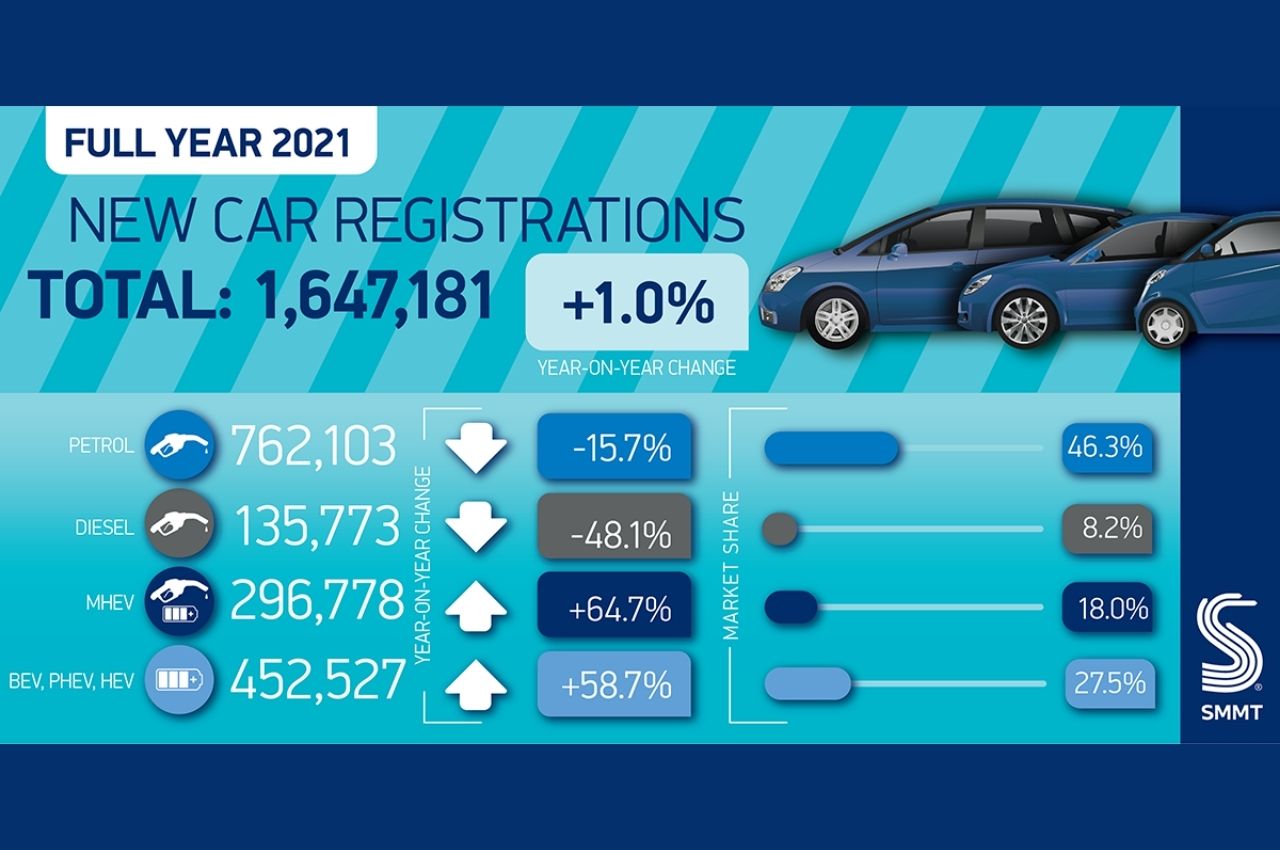New car registrations in 2021 grew by one per cent on 2020 but were still down 28.7% on 2019 sales. According to the Society of Motor Manufacturers and Traders, 1.65 million new cars entered the UK market last year.
However, in the flip side, 2021 was a breakthrough year for battery electric vehicles, with 190,727 units sold, or 18.5% of all sales. An additional 147,246 hybrid electric vehicles were also registered, representing an 8.9% market share, meaning that more than a quarter (27.5%) of all new vehicles entering the UK market last year were at least partly electric.
Uptake of BEVs rose throughout the year, with December marking a record month with 25.5% of all new registrations electric.
But while the UK finished 2021 as the third largest European market for new car registrations and the second largest by volume for plug-in vehicles and BEVs, this paints a slightly distorted picture; it is only in ninth position in Europe for BEVs by market share, while cuts to government grants and the slow pace of growth in on-street public charging could well curtail EV demand in the future.
Mike Hawes, SMMT Chief Executive, said, “It’s been another desperately disappointing year for the car industry as Covid continues to cast a pall over any recovery. Manufacturers continue to battle myriad challenges, with tougher trading arrangements, accelerating technology shifts and, above all, the global semiconductor shortage which is decimating supply.
“Despite the challenges, the undeniable bright spot is the growth in electric car uptake. A record-breaking year for the cleanest, greenest vehicles is testament to the investment made by the industry over the past decade and the inherent attractiveness of the technology. The models are there, with two of every five new car models now able to be plugged in, drivers have the widest choice ever and industry is working hard to overcome Covid-related supply constraints.
“The biggest obstacle to our shared net zero ambitions is not product availability, however, but cost and charging infrastructure. Recent cuts to incentives and home charging grants should be reversed and we need to boost the roll out of public on-street charging with mandated targets, providing every driver, wherever they live, with the assurance they can charge where they want and when they want.”
















